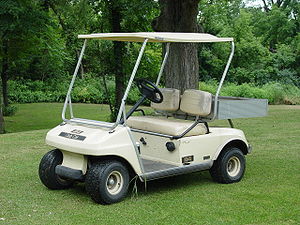The Right Way to Insure Your Toys

English: Caravan of Heartland Bighorns on the way to the Summer 2009 Oregon Rally in Winchester, OR. (Photo credit: Wikipedia)
Play it smart. Make sure your recreational vehicles (RVs), boats, golf carts, and other fun things are protected. But beware — your auto and homeowners insurance might not offer full coverage.
You could end up paying out-of-pocket if you have an accident, break down, or hurt someone. Worse yet, if someone sues you over an injury and wins, they could take most of what you own, including your retirement savings.
Insurance shelters you from these financial catastrophes, says Steve Sparkes, a certified insurance counselor and independent agent with Barker Uerlings in Oregon. Having the right coverage is crucial to your retirement plans.
RVs.
A recreational vehicle is part auto, part home. As such, a patchwork of policies protect it. “Some auto insurance companies
will put motor homes on their auto policies and cover it like a vehicle.” This gives it collision, uninsured motorist, comprehensive, and liability coverage, Sparkes explains. But not all will, and they may not cover the RV while it’s parked.
Your homeowners policy insures your personal belongings, like clothes or a television in the motor home. But chances are, it does not extend personal liability protection, especially if you live in the vehicle a significant amount of time each year. That means if someone falls on the RV space you their medical bills and even face a lawsuit.
Sparkes suggests you buy a special insurance policy to fill in these gaps if you spend a lot of time in your RV. Progressive, Foremost, and other specialty insurers sell policies tailor-made for motor homes that provide auto, contents, and personal liability coverage.
Boats.
Basic homeowners insurance may provide personal liability coverage on watercraft, like boats, Sparkes says, but with a horsepower limit. If you exceed the limit, you’re uninsured.
“I would recommend purchasing watercraft or boat insurance. You can probably modify your homeowners policy to pick up liability coverage and damage to the boat itself,” he notes. Yet, a separate boat policy will offer more comprehensive protection. If you plan to water ski, he warns, shop for a policy without liability limits on water skiing accidents.
Golf carts.

English: A picture of a Club Car 84 golf cart. Italiano: Foto di una golf cart. (Photo credit: Wikipedia)
Once again, regular insurance provides a patchwork of protection. Your homeowners insurance generally shields you from personal liability while the cart is on your property. The course’s insurance covers you while you’re on the golf course. But between home and the course, you may have little or no coverage.
Ask your agent how your homeowners policy insures your golf cart, and how you can improve the existing coverage. “Make sure your homeowners policy covers you not just on the golf course or on your property, but in between, as well,” advises Sparkes. Consider adding personal liability and damage coverage for the cart, he says, or buy a separate golf cart policy with these protections.
Collectible cars.
These classics need insurance like your other autos, but Sparkes suggests shopping with an insurer who specializes in classic cars. If you have an accident, they will pay you the total collectible value of the car, as opposed to your regular auto policy, which will pay the depreciated value.
The company will need documentation before issuing you a policy, so be ready to provide proof. “The insurer will require photos from all sides, inside and out,” he explains. “Most of them require everything be original.”

Category: Car Insurance






